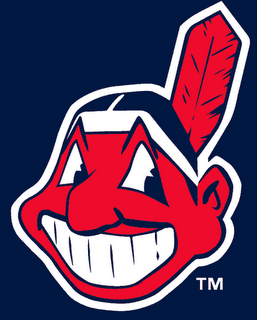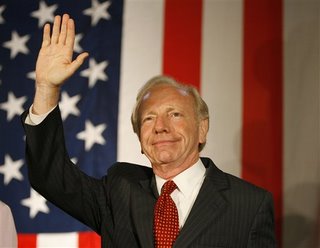
The Cleveland Injuns thank you for your continued support.
I wonder if any current football or baseball teams would be named the Atlanta Tarskins or the Carolina Nigger Feet if the American South had either successfully maintained its’ “right” to own slaves or peacefully seceded from the Union. I submit to you that neither of these names is any more offensive than the Washington Redskins. Yesterday, a group of Native Americans filed a petition with the U.S. Patent and Trademark Office to cancel the trademarks for the Washington Redskins football team, saying the name is disparaging to indigenous groups. The petition, filed with the Trademark Trial and Appeal Board in Alexandria, Virginia, cites “extensive evidence concerning the history of the use of the term ‘Redskin’ and public perception of the objectionable term.” Incidentally, check out how the story is framed. Susan Decker and Curtis Eichelberger of Bloomberg News want to reassure their readership that only SIX little Indians want the name changed. I immediately asked myself why this should be important considering that the six undoubtedly represent a much larger contingent of folks who object to a racist slur being used as a team name.
At any rate, unsurprisingly, a recent USA Today poll shows that approximately 80% of respondents a) don’t have a problem with the name “Redskins” and b) wish to continue the name’s “tradition.” This doesn’t shock me. America (read: White America) has never really copped to its systematic, government-sponsored attempt to exterminate Native Americans, its “tradition” of “killing the Indian to save the man” or its “tradition” of race-based privilege.
What I do find confounding is the tenacity with which so many African-American fans of the team support the team name. When I lived in the Washington Metropolitan area, I was astonished by the typical African-American reaction to suggestions that the name of the local team be changed. Responses generally ranged from glossy-eyed apathy to dogged, pathological defense of both the name and the logo.
I’ve often asked myself what we have to gain from the continued marginalization of Native Americans. Historically, African-Americans and Native Americans have had both a cooperative relationship and a common enemy. Indeed, many black folks will be the first ones to let you know that they have some Native American ancestry. Why then don’t black folks in DC see the larger picture?
Noam Chomsky proffered a compelling argument regarding how our sports culture depoliticizes us. He spoke about how at any point during the day we can tune into our local radio sports program and be privy to the Average Joe’s complex, in-depth analysis of the players and teams for which he roots. He goes on to note that Joe Sixpack does not generally defer to the experts with regard to his sports-related opinions ,“ they're quite happy to have an argument with the coach of the Boston Celtics, and tell him what he should have done, and enter into big debates with him and so on. So the fact is that in this domain, people somehow feel quite confident, and they know a lot - there's obviously a great deal of intelligence going into it.” Chomsky argues that we are locked out of the things to which we otherwise might apply our intelligence, e.g. politics, so we adapt by becoming intellectually devoted to baseball or football.
Moreover, according to Chomsky, sports provide another, more important function. They serve to nurture our jingoistic tendencies and help us develop “irrational loyalties” beginning at a very early age. From Chomsky:
“But the point is, this sense of irrational loyalty to some sort of meaningless community is training for subordination to power, and for chauvinism. And of course, you're looking at gladiators, you're looking at guys who can do things you couldn't possibly do - like, you couldn't pole-vault seventeen feet, or do all these crazy things these people do. But it's a model that you're supposed to try to emulate. And they're gladiators fighting for your cause, so you've got to cheer them on, and you've got to be happy when the opposing quarterback gets carted off the field a total wreck and so on. All of this stuff builds up extremely anti-social aspects of human psychology. I mean, they're there; there's no doubt that they're there. But they're emphasized, and exaggerated, and brought out by spectator sports: irrational competition, irrational loyalty to power systems, passive acquiescence to quite awful values, really. In fact, it's hard to imagine anything that contributes more fundamentally to authoritarian attitudes than this does, in addition to the fact that it just engages a lot of intelligence and keeps people away from other things.”
That explains a lot. Namely, why franchise owners can extort a city for hundreds of millions of dollars to build new stadiums with little to no backlash. Or why we draw up elaborate, imaginary divisions with folks based on the team for which they root. Or why we keep paying more money each year for a diminishing product. Or why we continue to cheer when our favorite teams treat their players like interchangeable ingredients in a stew. Or why we periodically unleash our collective fury on players who hold out for more money but give owners a free pass. Our how a stadium full of otherwise rational people can be convinced to make “Indian” whooping noises and chopping motions with their hands. Our why we allow some jackass to put feathers in his hair, and jump around at halftime like an idiot, and think he’s somehow paying homage to Native Americans.
Given all this, it is hardly shocking that people who should know better, who should, in fact, be among the first to recognize how a name like “Redskins” dehumanizes our Native American brethren, serve as apologists for those in power who seek to keep it. Indoctrination and socialization have done such a number on us that we exalt meaningless, often faceless, sports clubs and their logos over other human beings based on the premise that anyone who’s offended by this stuff is just too sensitive. History (depending on who writes it) won’t be kind.
Labels: Cultural Criticism, Sports





